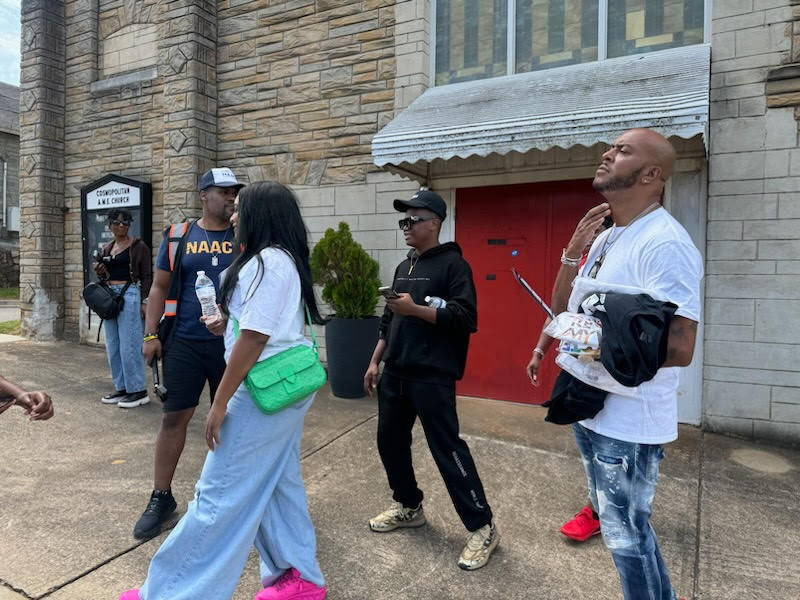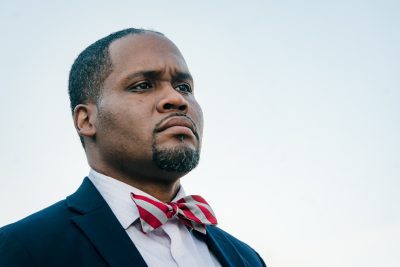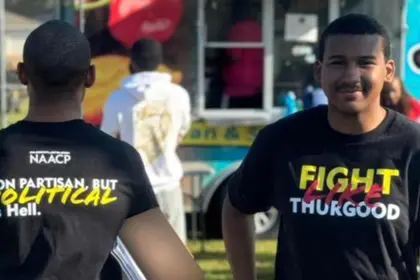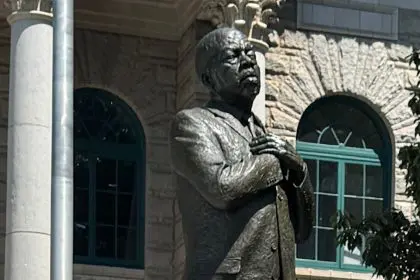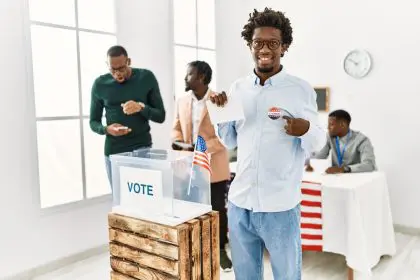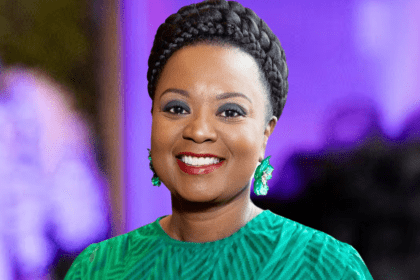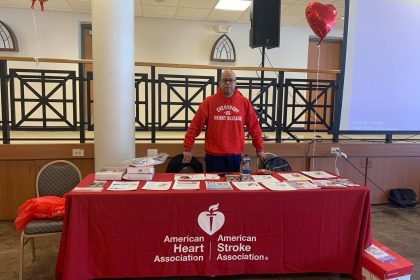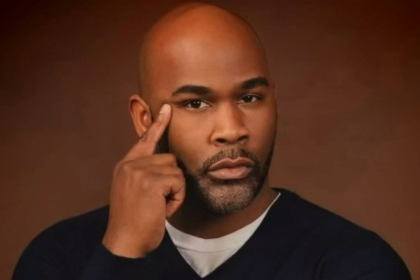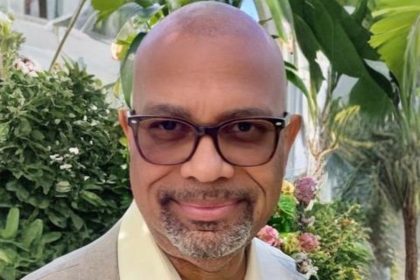Gerald A. Griggs is an Atlanta attorney who was elected the 13th President of the State Conference of the Georgia NAACP by an overwhelming margin. Sixteen months later, he became the President of the Atlanta NAACP. He is the author of the following editorial.
— the editors
As another pivotal election cycle approaches, it is critical to focus on one of the most fundamental components of our democracy: voter registration. In communities like Vine City, where residents have historically been marginalized and systematically silenced, canvassing for voter registration is more than a task—it’s a mission to restore the political power that has been stripped away from too many for too long.
Vine City, a predominantly African American neighborhood in Atlanta, has suffered from decades of systemic neglect. The long shadow of redlining, economic disinvestment, and discriminatory housing practices has left scars that still hinder the community today. These challenges are not just socioeconomic; they are political. The absence of accessible voting options and a history of voter suppression have created a cycle of disenfranchisement that we must work diligently to break. Canvassing offers a way to disrupt that cycle by meeting people where they are—literally and figuratively—and bringing democracy to their doorstep.
Canvassing is far more than simply gathering names on a list. It’s an opportunity to engage with residents on a personal level, helping them understand the weight of their vote and how the political system affects their everyday lives. In communities like Vine City, many individuals may feel that their voices don’t matter or that voting will not bring about real change. This is a deeply ingrained perception rooted in years of political exclusion and broken promises. By canvassing, we can begin to change that narrative.
When volunteers knock on doors in Vine City, they aren’t just encouraging residents to register to vote; they are empowering them with knowledge. Canvassers can explain the mechanics of voter registration, provide information on how to vote by mail or in person, and clarify what residents can expect at the polls. Even more importantly, canvassers can connect the dots between voting and the issues that matter most to the community—whether it’s improving local schools, creating better job opportunities, or increasing access to healthcare. This is the crucial work of voter education, which often goes hand-in-hand with registration in underserved areas.
The importance of canvassing in communities like Vine City also lies in its ability to build trust. Many residents of underserved neighborhoods have had good reason to be skeptical of political systems. They’ve seen politicians come and go, making promises that rarely translate into tangible improvements in their daily lives. For this reason, engaging with people face-to-face is vital. It shows a level of commitment that goes beyond flashy slogans or television ads. Consistent, direct engagement demonstrates that we see their struggles and that their voices are valued. It’s about being present, listening to concerns, and letting people know that we are in this fight together.
It’s also essential to understand that voting is power. The right to vote is not just a fundamental aspect of democracy; it is the key to shaping the policies and decisions that affect our communities. When a community like Vine City, which has been overlooked for so long, is empowered to vote, it gains the ability to influence change. That change might come in the form of electing representatives who will fight for affordable housing, or by passing legislation that protects local schools from closure. Each vote counts, and canvassing ensures that the people of Vine City know that their vote can make a difference.
Moreover, canvassing directly combats the effects of voter suppression. In many states, particularly in the South, voter ID laws, polling place closures, and reduced access to early voting disproportionately affect communities of color and low-income residents. By canvassing, we can help residents navigate these barriers, ensure they have the necessary documents to register, and inform them of their rights. This grassroots effort is an essential response to the systemic efforts that seek to suppress the political voice of the marginalized.
Our democracy thrives when all voices are heard, and that includes the voices of communities that have been silenced for far too long. We cannot afford to ignore the importance of canvassing in underserved neighborhoods like Vine City. It is not just a strategy for winning elections; it’s a strategy for rebuilding trust, fostering civic engagement, and ensuring that every person has the opportunity to be heard.
The stakes could not be higher. In an era where voter suppression tactics are becoming more sophisticated, we must fight harder to ensure access to the ballot for everyone. Canvassing is one of the most effective tools we have in that fight. By knocking on doors, having meaningful conversations, and building connections, we are empowering the people of Vine City and other underserved communities to reclaim their political power. The future of our democracy depends on it.

